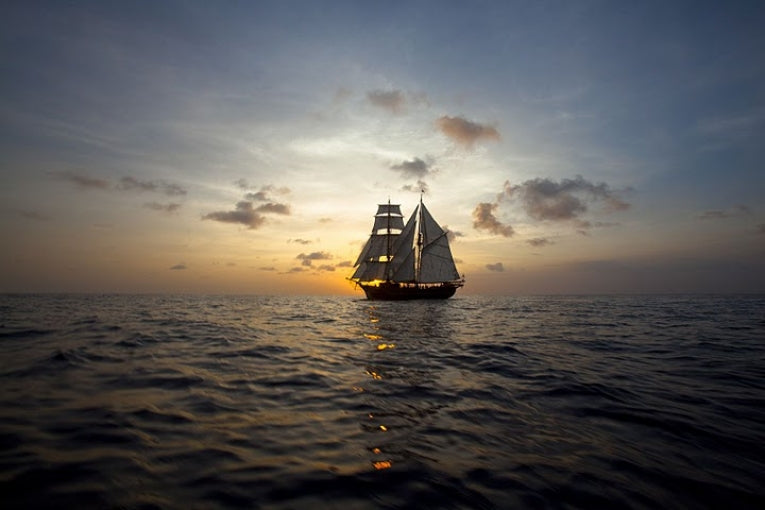As oil prices sky-rocket, making common forms of transportation more expensive, is the 7000 year old method of propelling boats using sails about to make a comeback? Jan Lundberg, of the Sail Transport Network (STN), thinks so. He points out that most of the people in the world live on coasts or near inland waterways, and so could be reached by sailing boats. With a good boat and a working knowledge of tides and currents, most places can be reached by sailing vessels. He says, "A few years ago sail transport was thought to be off on the distant horizon and impractical in the 'real world.' This is changing rapidly."
As Lundberg sees it, there are two schools of thought regarding sailing in a low-carbon future: short haul local deliveries using small boats. The Puget Sound in Washington State, USA is ideal for this kind of work - lots of towns dotted around a waterway. STN was formed there, and some entrepreneurs are using the Sound to transport organic food from small farms adjacent to the waterway to Seattle and other destinations.

The other opportunity is for major cargo deliveries using sail-powered or sail-assisted vessels, using the free wind power to offset the large cost of fuel. In order to lower running costs, cargo ships are now often reducing speed to 12-15 knots, but this makes them slower than the sail-powered clipper ships of a century or more ago. It has recently been revealed that the "Bunker Fuel" that most cargo ships use is amongst the nastiest and most climate polluting of oil fuels. Of course maritime carbon emissions, like aviation ones, were excluded from the Kyoto treaty, but that doesn't mean they ceased to be a climate-change causing pollutant.
Of course it is inadvisable to rely purely on the wind, but biodiesel can be used to power the small auxiliary engines most sailing boats have. There are experiments in using the sun via solar panels or small wind turbines, or regenerative power from the propeller to power a small electric motor as an alternative to the diesel engine.
Fibre glass hulls and Dacron or Nylon sails are of course products of the petrochemical industry. In addition the materials and skills for making wooden ships with canvas sails are not in abundance any more.
What are the barriers to implementing this idea? Lundberg says that we should stop thinking in terms of "right now" just-in-time delivery, which most of the commercial world is predicated on, and slow down our lifestyles to accommodate a more sedate pace of delivery for non-perishable goods. Sailing boats do have to wait for the right winds, tides, and currents. They also need retractable masts to go under bridges. Many of the seafaring skills our ancestors had have been lost or are rare, but that does not mean they cannot be rediscovered or re-learnt.

Lundberg believes that this would be a stimulus to localised commerce, not just by using the water for transportation, but also the scrapping of old ships and reuse of the materials to build new highly-efficient sailing ships, marrying new technology and computer control with ancient seafaring skills. By using bicycles and trailers for final delivery, a whole zero-carbon haulage industry could be created. Small scale experiments in this are going on all over the world.

The Ecoliner design. Photo Credit: Fairtransport.
Dutch company Fairtransport has brought produce from the USA to the Caribbean and Europe with the 126 ton brigantine "Tres Hombres" and they are planning to build an advanced Ecoliner, a "hybrid" vessel using both high tech sail and engine power, which will be 50% less polluting than a conventional ship.
British company B9shipping are also developing a high-tech cargo ship using sails and biogas (biologically produced LNG from waste).
Undoubtedly other projects will rediscover the joy and efficiency of sail, just like our seafaring ancestors did.
Top image: Fairtransport's sailing cargo vessel "Tres Hombres" crossing the Atlantic. Photo Credit: Maarten Kal.
Links:















